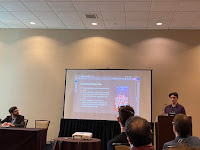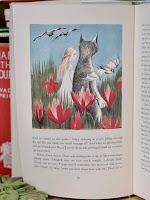На фоне схлопыванья всех соцсетей (по множеству причин, и не только политических) итоги года молчаливо пишутся сами собой, и чаще всего незаметно — и независимо — от нас.
Год был разным, и в очередной раз продемонстрировал несостоятельность всех предъявляемых под предыдущей елкой запросов: все, что получилось, снова получилось не благодаря, а вопреки. Научная работа была вариативно-плодотворной — вытанцевалось сделать Армитадж симпозиум в Провиденсе (впервые в качестве главного организатора, что отрадно: подготовка стоила мне многих усилий, но ныть по этому поводу неприлично, поэтому не будем) и выпустить к нему монографию с некрономиконовскими статьями двухлетней давности; в апреле съездила в Саффолк на отличную джеймсианскую конфу. Однако ж список того, что не получилось или не срослось по тем или иным причинам, гораздо внушительнее всех успешных успехов, вместе взятых: очень мало качественно написанного, еще меньше опубликованного (статус «в печати», признаться, нервирует), не очень много прочитанного (мое цундоку уже размером с Австралию, и вероятность возглавить Всеевропейскую Комиссию по Прокрастинации выглядит теперь вполне реалистично), ну и очевидный минимум того, что удается удержать в профессиональной памяти, тоже не радует (борюсь с bye-лингвализмом как могу, а что делать?..).

















































